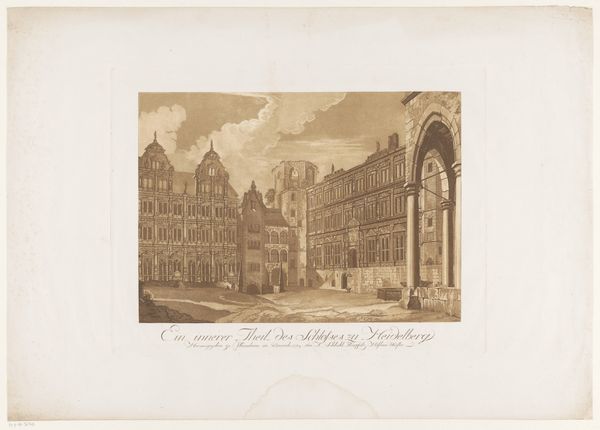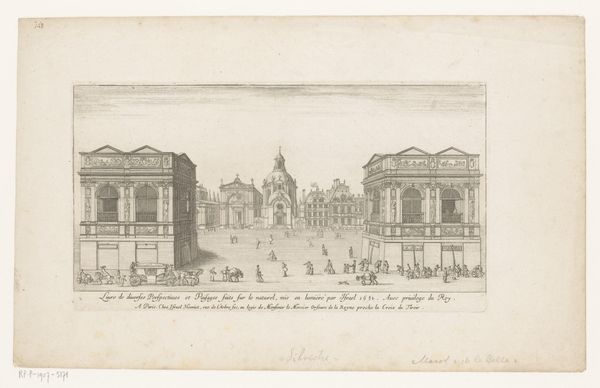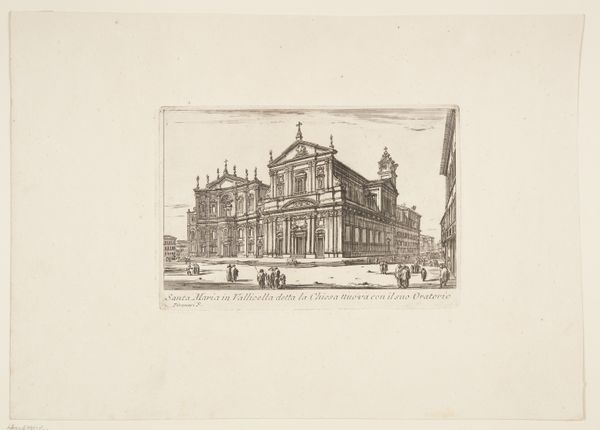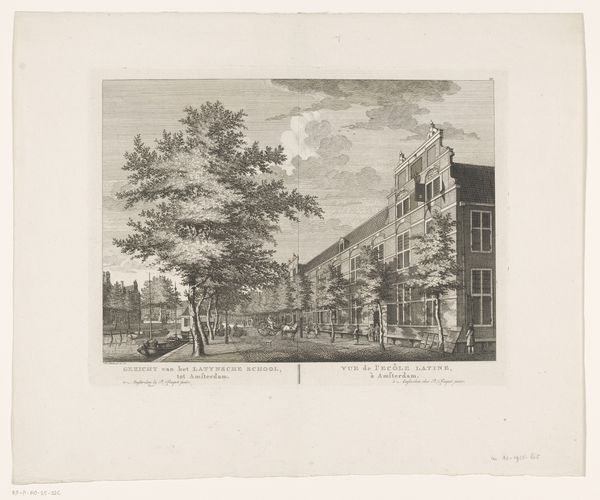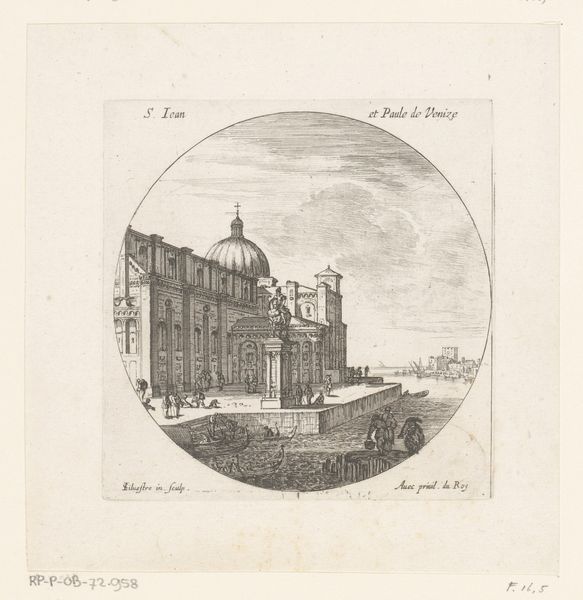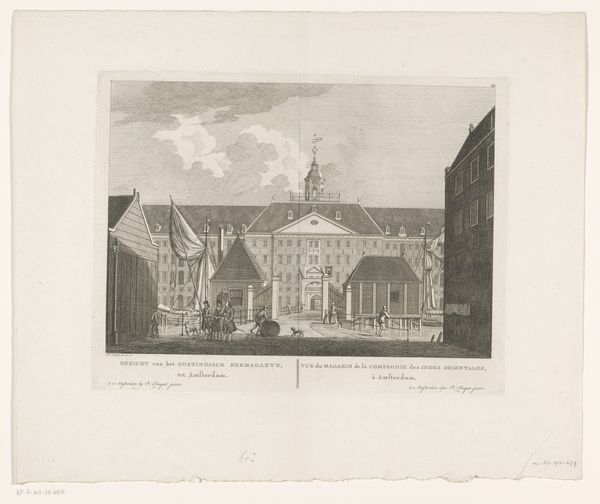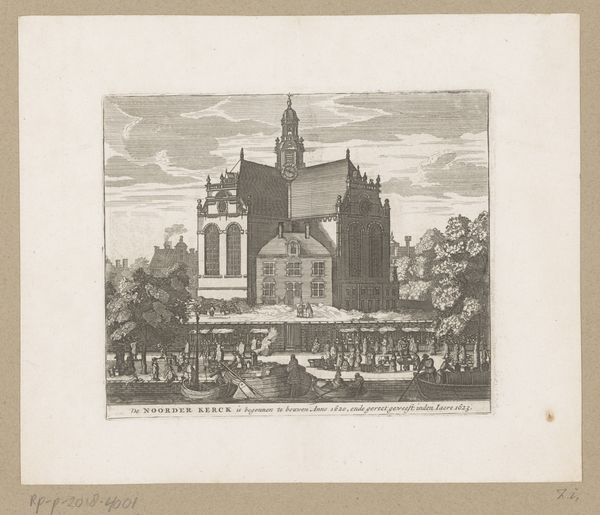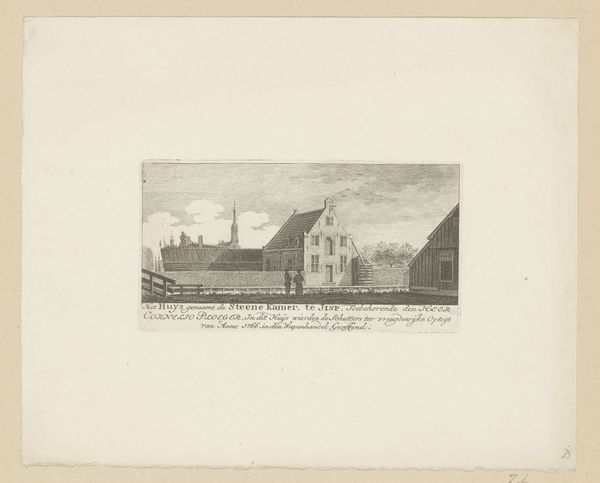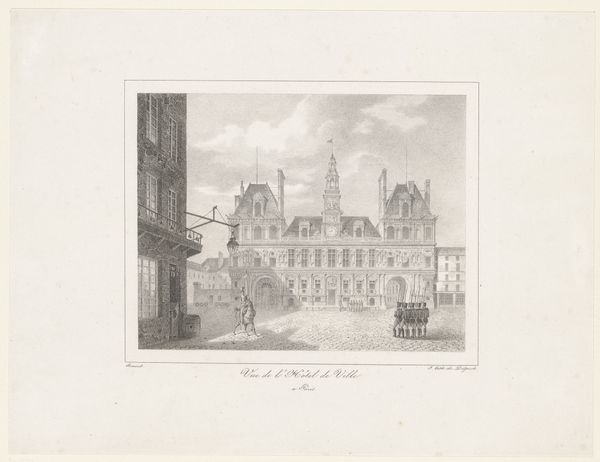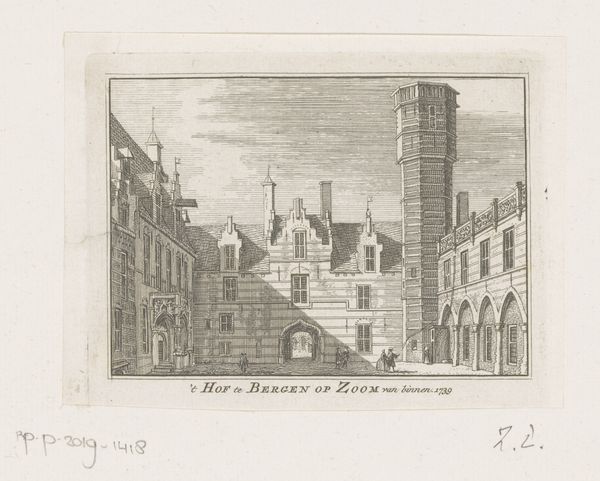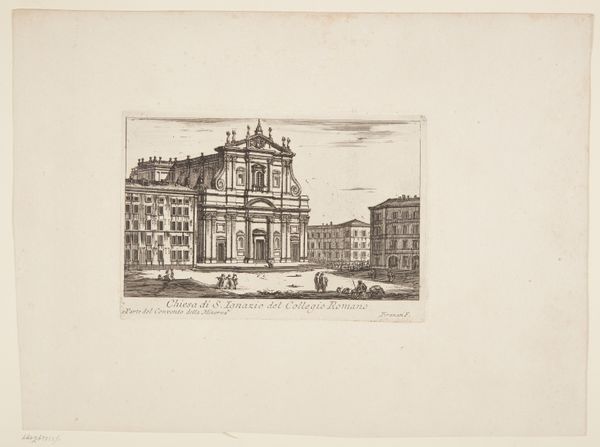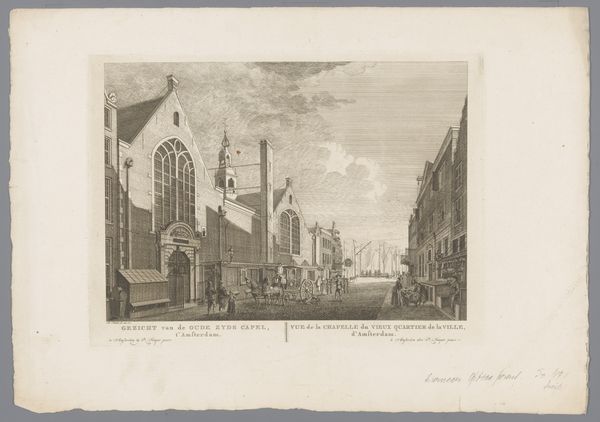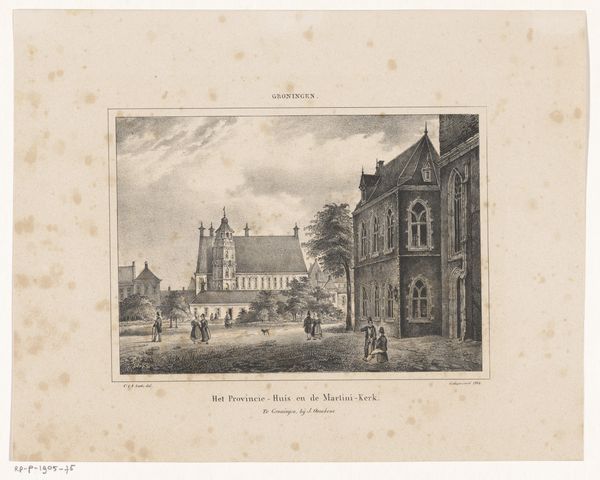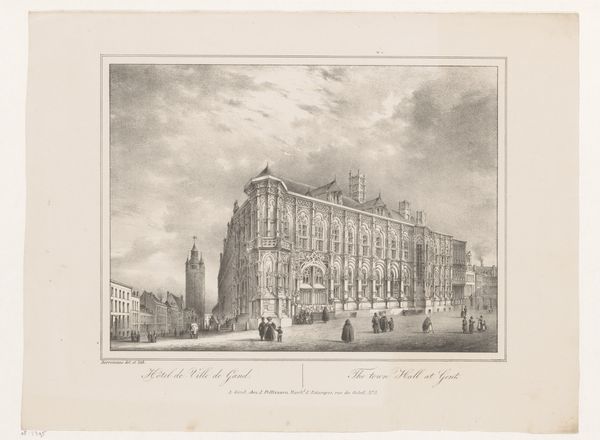
drawing, print, etching, paper, architecture
#
drawing
#
neoclacissism
# print
#
etching
#
landscape
#
paper
#
cityscape
#
architecture
Dimensions: height 376 mm, width 490 mm
Copyright: Rijks Museum: Open Domain
Abel Schlicht made this etching of the north side of Schloss Heidelberg in the late 18th or early 19th century, using an iron or copper plate to transfer the image to paper. The printmaking process is, in itself, an early form of industrialization, allowing for the mass production of images and dissemination of ideas. In this case, we see the built environment rendered through repetitive, controlled marks. The image is a study in contrasts: on one hand, the grand architecture of the castle, representing power and permanence. On the other, the delicate, almost fragile lines of the etching, hinting at the ephemerality of human endeavors. Look closely, and you can see the artist's hand in the subtle variations of tone and texture. This piece prompts us to consider the relationship between the built environment, the labor involved in its creation, and the artistic process of capturing and interpreting it. It is a reminder that even the most monumental structures are the result of countless individual actions, each leaving its mark on the final product.
Comments
No comments
Be the first to comment and join the conversation on the ultimate creative platform.
